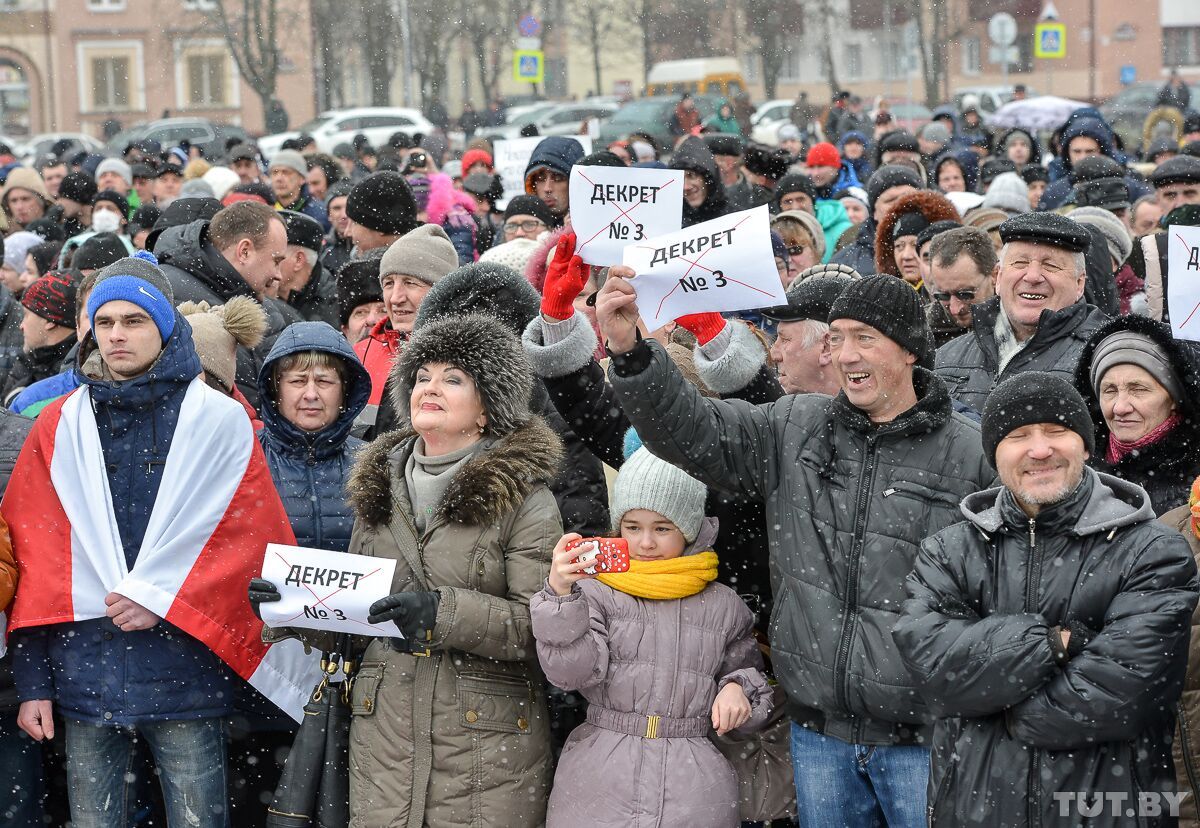Belarusian authorities hope to narrow application of Decree on ‘social parasites’
 The situation has not changed
The situation has not changed

Yet the Belarusian authorities have not taken any action to prevent massive protests against the decree on ‘social parasites’. On February 26th, 2017, multiple protests against the decree were held in three Belarusian regions in Vitebsk, Baranovichi, Brest and Bobruisk (more than 4 000 people participated in total). Very likely, the authorities, on the one hand, anticipate that the decree will be abolished, and other hand, do not want to take responsibility for decisions either on the decree or on the protests.
It should be noted, that the mass street protests on February 17th, 19th, and 26th, were held in the absence of the president in the country. There are reasons to believe that the authorities did not expect such a massive action. The state propaganda responded tangentially, insisting that protests were unjustified, because ‘the state did not require a lot’, despite the fact, that the protesters primarily complained about the lack of jobs in the country. In addition, the protesters pointed to the unfairness of the requirement to pay the tax for being unemployed as the state could not provide job and money making opportunities, while people were humiliated by the need to prove to the state they were unable to pay the tax.
In the past ten days, there were several protests against the decree, which were characterised by the following: the protesters easily picked up anti-Lukashenka slogans; they eagerly shared their outrage with journalists; many protesters said it was their first time when they took to the streets; protesters were ‘common people’, i.e. not political activists; there were fewer white-red-white flags during these protests than during conventional oppositional actions; politicians, who organised protests (eg on February 26th, by the centre-right coalition and the independent trade union) did not attempt to take the lead, especially in the regions. All this gives a picture of truly popular protests.
While refraining from interfering with the meetings and protest marches, the militia on February 26th attempted to put pressure on the protest organisers in the regions by handing out reports on administrative violations after the events. Other than that, it appears that the local and central authorities are unable to respond to the massive protests against the Decree No 3, including crowded street speeches, numerous signatories of petitions (over 80 000), multiple collective and personal appeals to the authorities, and mass meetings.
That said, the authorities are unable to enforce the Decree No 3 as they do not have sufficient resources to trial some 400 000 people for non-compliance. In addition, the authorities do not have sufficient institutional capacity to exempt all those not liable for the tax from the mailing lists of the Tax authorities. The Belarusian Bar Association will provide free legal consultations on March 1st, 2017 for those wishing be exempt from the tax imposed by the Decree No 3, however, this would only slightly east the tension in society.
In addition, despite concerns expressed by some experts and the leader of the protest in Minsk on February 17th Mikola Statkevich, there were only scarce reports in the Russian media about the protests in Belarus.
Subscribe to our newsletter




Situation in Belarus
Constitutional referendum: main consequences


 Video
Video
How to count the political prisoners: are the new criteria needed?


 Video
Video
Paternalism In Decline, Belarusian Euroscepticism, And The Influence Of Russia


 Video
Video












